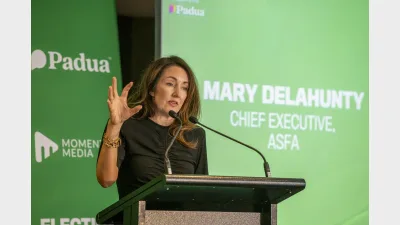iShares local ETFs pass $140 million
BlackRock Australia's iShares business has released four new exchange-traded funds (ETFs) onto the Australian market, which have passed $140 million in investments in their first two days of trading.
The ETFs are aimed at both retail and institutional investors and bringing the total iShares range to 23 ETFs available on the Australian Securities Exchange (ASX).
In terms of iShares existing products and underlying benchmarks, the manager has seen huge flows from the Australian institutional market, according to iShares head of institutional sales Oliver Berry.
Tom Keenan, iShares head of intermediary sales, said the iShares capital markets group was a crucial part of the value proposition.
The two sources of liquidity for ETFs are the secondary market, where authorised representatives can trade via online trading screens, and the primary market, where authorised participants and liquidity providers can create and redeem additional shares in ETFs.
This means ETFs have an open supply and investors can closely track the underlying benchmark that each ETF is based on.
"A fully functioning ETF must therefore have multiple liquidity providers that ensures price tension," Keenan said.
"It needs a robust mechanism for creation and redemption and it needs to connect clients to liquidity providers. This is very important for the institutional market."
Because they are trading in size, institutional investors need to connect with the right liquidity provider that can ensure the best execution for each trade, he said.
The iShares S&P/ASX 20 ETF tracks the 20 largest companies by market capitalisation in Australia, the S&P/ASX Small Ordinaries ETF tracks the S&P top 300 companies excluding the top 100, and the iShares MSCI Australia 200 tracks the top 200 stocks in Australia based on the MSCI 200 index, which does not include foreign companies listed locally, such as Newscorp.
The fourth product is the iShares high dividend ETF, which tracks the S&P/ASX Dividend Opportunities Index and seeks to provide exposure to the highest dividend stocks in the S&P/ASX 300. It also seeks to generate high income without compromising return, Keenan said.
Management fees on the domestically domiciled suite of ETFs range from 19 to 55 basis points.
Recommended for you
Aware Super has made a $1.6 billion investment in a 99-hectare industrial precinct in Melbourne’s North which, the fund clarified, also houses the nation’s first privately funded open-access intermodal freight terminal.
ASFA has affirmed its commitment to safeguarding Australia’s retirement savings as cyber activity becomes an increasing challenge for the financial services sector.
The shadow treasurer is not happy with the performance of some within the super sector, telling an event in Sydney on Thursday that some funds are obsessed with funds under management, above all else.
As the Australian financial landscape faces increasing scrutiny from regulators, superannuation fund leaders are doubling down on their support for private markets, arguing these investments are not just necessary but critical for long-term financial stability.












